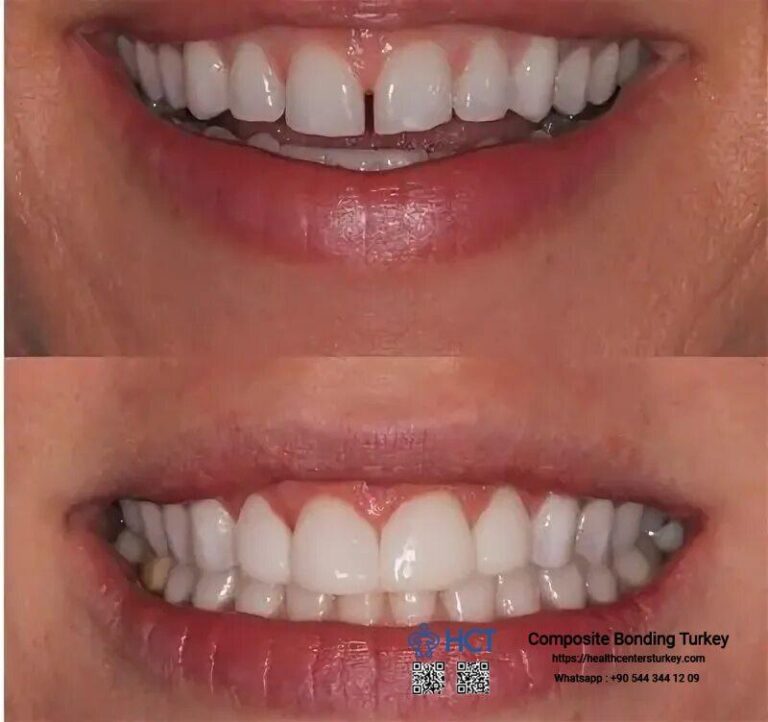Dental Tourism: Enjoy Affordable Care in Turkey

Dental implants have become a focus in modern dentistry, providing a dependable solution for these going through tooth loss. Among the multiple advantages they offer, one important aspect worth contemplating is their impression on adjacent teeth. Understanding how dental implants have an effect on surrounding teeth aids in making knowledgeable choices about oral health.
When a tooth is lost, neighboring teeth can simply shift towards the space left behind. This movement can result in misalignment, which compromises the overall chew and performance of the mouth. Dental implants mimic natural tooth roots, thereby sustaining the position of adjacent teeth.
Reasons to Consider Dental Tourism in Turkey for Treatment
The stability provided by an implant is crucial, because it helps in preserving not simply the physical alignment but additionally the structural integrity of the jawbone. When a tooth is missing, the underlying bone can begin to deteriorate due to lack of stimulation. An implant exerts strain on the bone throughout chewing, similar to a natural tooth, which promotes bone health.
In some cases, a bridge or partial denture may be thought of as an alternative choice to implants. While these options might restore some performance, they'll place extra stress on neighboring teeth. Bridges often require filing down the encompassing teeth to accommodate the anchors, thereby affecting their health over time. Dental implants, however, don't alter existing teeth, making them a more conservative choice.
Leading Dental Solutions offered throughout Antalya
Hygiene turns into one other critical factor when considering adjacent teeth in the context of implants. With dental implants, the person can preserve an everyday hygiene routine much like natural teeth. Flossing and brushing across the implant are straightforward, making certain that the gum tissue remains healthy and minimizing the danger of gum disease that might adversely affect adjacent teeth.
Moreover, the supplies utilized in dental implants are biocompatible. This means they're designed to integrate well with the body, reducing the chances of an adverse reaction. This attribute not only makes the implant protected but in addition protects nearby teeth from potential issues that would arise as a end result of contamination or infection.
In terms of aesthetics, dental implants offer a natural look and feel, closely resembling original teeth. Adjacent teeth benefit from this aesthetic appeal as well. When an implant is positioned, the encircling gum tissue may be formed to imitate natural contours, thereby enhancing the general appearance of the smile. This aesthetic factor can encourage individuals to put money into their oral care routines, benefiting both the implants and adjacent teeth in the long term.
Incredible Transformation from Dental Treatments in Turkey
Another concern is the potential for gum disease, which can affect the health of adjacent teeth. Gum disease can occur when plaque builds up around teeth and implants. Regular dental visits and appropriate oral hygiene can mitigate this concern. The presence of implants can even function a motivator for better dental hygiene practices, as people become more aware of sustaining their total mouth health.
Studies have proven that dental implants can contribute to a significant improvement in quality of life. Patients usually expertise increased confidence and are less hesitant to smile or have interaction in social interactions. A wholesome and well-maintained smile indirectly promotes better care for adjacent teeth, as people are inclined to turn out to be more conscious of their general oral hygiene.
One often-overlooked aspect is the psychological impression of dental implants on sufferers. Knowing that implants supply long-term options can ease the anxiousness related to tooth loss. With fewer worries about future tooth shifts, patients usually have a tendency to invest time and effort into caring for his or her teeth, which incorporates adjacent teeth.
In conclusion, dental implants discover here function more than only a solution for missing teeth; they play a pivotal function in maintaining the health and integrity of adjacent teeth. From stopping misalignment to promoting gum health and enhancing aesthetics, the advantages are manifold. By choosing implants, individuals can't only restore performance but also foster a more healthy oral environment for surrounding teeth. The psychological and aesthetic benefits further contribute to an general enhanced quality of life.
Remarkable Dental Services Focused on Patient Comfort
In the long term, understanding how dental implants affect adjacent teeth can information individuals in making empowered decisions regarding their dental health. The integration of these implants into the mouth acts as a stabilizing drive, safeguarding both the bodily alignment and performance of neighboring teeth, while selling a long-lasting, wholesome smile.
- Dental implants typically don't exert stress on adjacent teeth, maintaining their integrity and decreasing the chance of shifting or misalignment.
- The placement of an implant often encourages higher oral hygiene habits, positively influencing the health of adjacent teeth by way of improved cleaning practices.
Affordable Whitening Solutions to Enhance Your Smile
- In some instances, dental implants can stimulate the encircling bone, which helps preserve the natural teeth's place and total dental structure.

- The hole left by missing teeth can result in bone loss; dental implants can prevent this, thereby protecting adjacent teeth from potential issues.
- Most Recommended Dental Treatments for International Patients in Turkey
Efficient Treatment Options for On-the-Go Patients
- By restoring the function of a missing tooth, implants assist distribute chew forces evenly, reducing put on and stress on neighboring teeth.

- Properly placed dental implants can act as a support structure, stopping undesirable motion of adjacent teeth ensuing from tooth loss.
- The presence of an implant might enhance the aesthetic appearance of surrounding teeth by filling in gaps and supporting facial structure.
Increase Your Self-Esteem by Achieving a Beautiful Smile
- Dental implants eliminate the necessity for adjacent teeth alteration, unlike bridges, which require reshaping the close by teeth for help.
- Implants also scale back the risk of gum disease in comparability with different tooth replacement options, indirectly benefiting adjacent teeth by promoting total oral health.
Rejuvenate Your Teeth with Leading-Edge Dental Treatments in Turkey.
- Long-term success of dental implants is linked to the health of surrounding teeth, emphasizing the significance of normal dental check-ups and maintenance.
How do dental implants have an result on adjacent teeth?
Elevate Your Dental Aesthetics using Porcelain Veneers
What are dental implants and how do they work with adjacent teeth?undefinedDental implants are artificial tooth roots placed into the jawbone to assist replacement teeth. They don’t affect adjacent teeth immediately, as they are independent structures. Instead, they may help preserve the integrity of surrounding teeth by stopping bone loss.
Can dental implants cause damage to adjacent teeth?undefinedIf positioned appropriately, dental implants should not harm adjacent teeth. click for more However, improper placement can result in issues like misalignment or strain, emphasizing the significance of selecting an experienced dental skilled.
Will dental implants promote bone development around adjacent teeth?undefinedYes, dental implants help stimulate the jawbone, which might encourage bone progress. This can benefit adjacent teeth by sustaining bone density and stability within the area.
Get Quality Dental Care in Turkey
Should I worry about gum disease affecting adjacent teeth after getting an implant?undefinedGood oral hygiene is crucial after getting an implant. Gum disease can nonetheless have an result on adjacent teeth, but a correctly maintained implant does not increase that risk. Regular dental visits may help monitor and keep gum health.
What occurs to adjacent teeth if I lose a dental implant?undefinedIf a dental implant fails or is misplaced, adjacent teeth may shift due to modifications in chew alignment and support structure. This might lead to misalignment or extra tooth loss if not addressed.
Are there any special care necessities for adjacent teeth after getting implants?undefinedMaintaining good oral hygiene practices, including common brushing, flossing, and dental check-ups, is important for both dental implants and adjacent teeth to forestall decay and gum disease.
Enhance Your Smile with Innovative Oral Health Techniques
Do dental implants assist help adjacent teeth when chewing?undefinedAbsolutely. Implants can enhance general chunk perform, which can alleviate stress on adjacent teeth throughout chewing. This can lead to higher distribution of forces, promoting oral health.
How can I prevent problems with adjacent teeth and implants?undefinedConsistent dental care, including skilled cleanings and examinations, regular brushing and flossing, and following your dentist’s aftercare instructions, are key to stopping problems.
Can adjacent teeth transfer if I have a dental implant?undefinedAdjacent teeth might transfer if they are not well-supported, especially after tooth loss. A dental implant helps preserve the structure, reducing the danger of shifting teeth.
Comments on “Comprehensive Dental Assessments throughout Antalya”